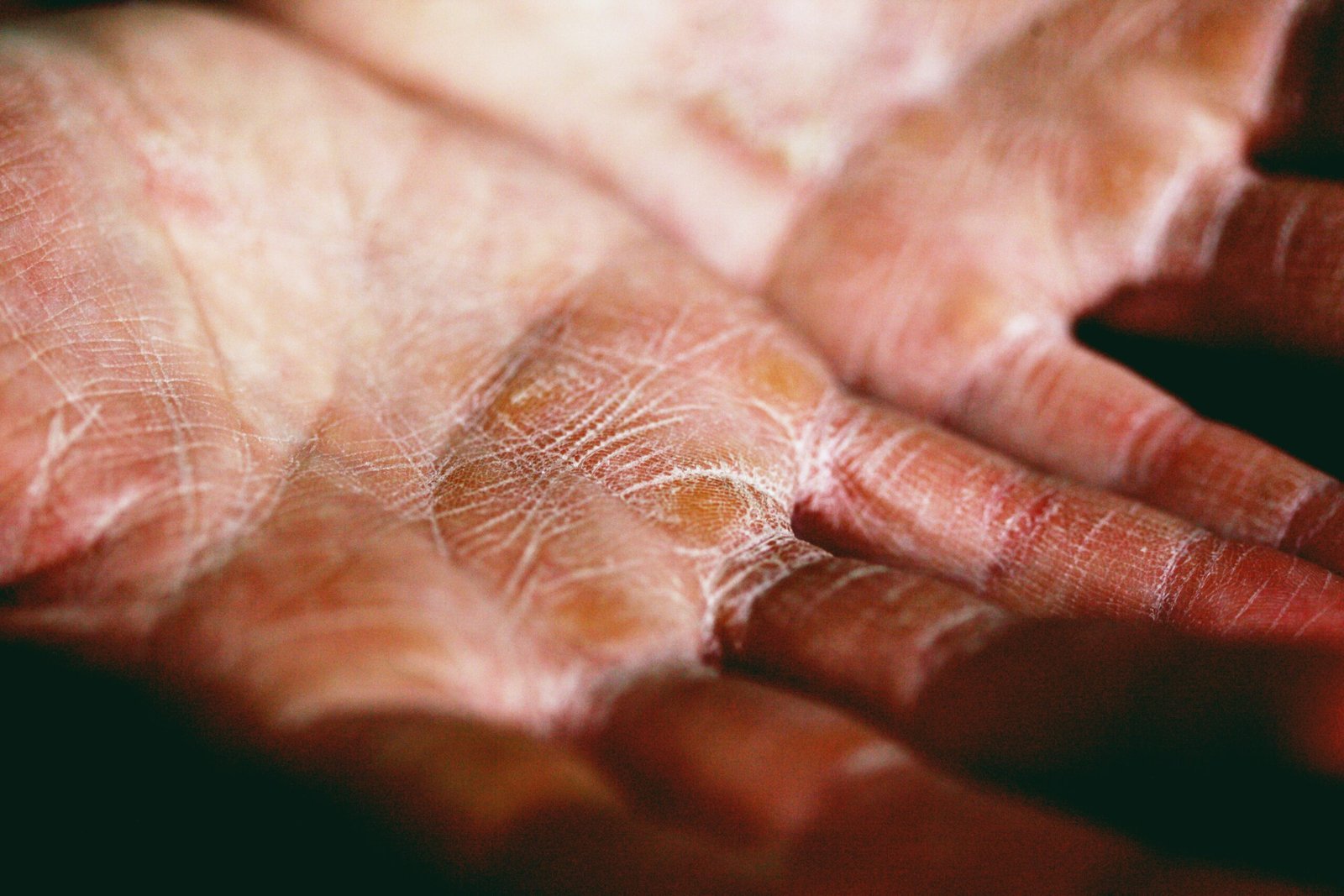
Introduction
Eczema is a common skin condition that affects many children. It is characterized by dry, itchy, and inflamed skin. If your child has eczema, you may be wondering if swimming is safe for them. In this article, we will explore the relationship between swimming and eczema, and provide some tips on how to manage your child’s skin while they enjoy the water.
Swimming can be a great activity for children with eczema, as it can help to soothe their itchy skin and provide relief from the discomfort. The water can help to hydrate the skin and reduce inflammation, making swimming a beneficial form of exercise for children with eczema. However, it is important to take some precautions to ensure that your child’s skin is protected while they are in the water.
One of the most important things to consider when it comes to swimming and eczema is the chlorine content in the pool. Chlorine is commonly used in swimming pools to kill bacteria and keep the water clean, but it can also be irritating to the skin, especially for children with eczema. If your child’s skin is sensitive to chlorine, it may be a good idea to look for a pool that uses a lower chlorine concentration or consider swimming in natural bodies of water, such as lakes or the ocean.
In addition to the chlorine content, the temperature of the water can also affect your child’s eczema. Hot water can dry out the skin and exacerbate eczema symptoms, so it is important to make sure that the water is not too hot. A lukewarm temperature is generally the best option for children with eczema, as it can help to keep their skin hydrated without causing further irritation.
Another important aspect to consider is the type of swimwear your child wears while swimming. It is best to choose swimwear that is made from soft, breathable materials, such as cotton or bamboo, as these fabrics are less likely to irritate the skin. Avoid swimwear with rough seams or tags that can rub against the skin and cause further irritation.
Before and after swimming, it is important to moisturize your child’s skin to help maintain its hydration. Apply a thick, fragrance-free moisturizer to their skin before they enter the water, as this can create a barrier between their skin and the chlorine. After swimming, rinse off any chlorine or saltwater from their skin and apply moisturizer again to lock in the moisture.
Overall, swimming can be a safe and enjoyable activity for children with eczema, as long as certain precautions are taken. By choosing the right pool, maintaining a suitable water temperature, selecting appropriate swimwear, and moisturizing the skin properly, you can help your child to enjoy the water without worsening their eczema symptoms. Remember to consult with your child’s dermatologist for personalized advice and recommendations based on their specific condition.
Eczema is a complex condition that affects millions of people worldwide. It is characterized by inflammation of the skin, which leads to symptoms such as redness, itching, and dryness. While the exact cause of eczema remains unknown, researchers believe that a combination of genetic and environmental factors play a role in its development.
Genetics is thought to be a significant factor in determining an individual’s susceptibility to eczema. Studies have shown that people with a family history of the condition are more likely to develop it themselves. This suggests that certain genes may be involved in the regulation of the immune system and the skin’s barrier function, both of which are important in preventing eczema.
Environmental factors can also contribute to the development of eczema. Exposure to certain substances or conditions can trigger flare-ups in individuals who are already predisposed to the condition. Dry skin, for example, is a common trigger for eczema. When the skin lacks moisture, it becomes more susceptible to irritation and inflammation. This is why it is important for individuals with eczema to regularly moisturize their skin to help maintain its natural barrier.
Irritants and allergens are another common trigger for eczema. Substances such as certain fabrics, soaps, detergents, and perfumes can irritate the skin and lead to a flare-up. Allergens, such as dust mites, pet dander, pollen, and certain foods, can also trigger an immune response in individuals with eczema. Avoiding these triggers can help reduce the frequency and severity of flare-ups.
Heat and sweat are additional factors that can exacerbate eczema symptoms. High temperatures and humidity can cause the skin to become more prone to irritation and itching. Sweat, particularly when it becomes trapped against the skin, can also contribute to eczema flare-ups. It is important for individuals with eczema to stay cool and dry, especially during hot and humid weather.
While there is currently no cure for eczema, there are various treatment options available to help manage the condition. These include moisturizers to keep the skin hydrated, topical corticosteroids to reduce inflammation, and antihistamines to relieve itching. In severe cases, systemic medications or phototherapy may be recommended.
It is important for individuals with eczema to work closely with their healthcare provider to develop a personalized treatment plan. This may involve identifying and avoiding triggers, implementing a skincare routine, and using prescribed medications as directed. With proper management, most people with eczema are able to control their symptoms and lead a normal, comfortable life.
Swimming is not only beneficial for the physical health of children with eczema, but it can also have a positive impact on their mental well-being. The soothing nature of being in the water can help children relax and unwind, reducing feelings of stress and anxiety. This can be particularly helpful for children with eczema, as stress is known to exacerbate symptoms and trigger flare-ups.
In addition to the physical and mental benefits, swimming can also provide social opportunities for children with eczema. Joining a swimming class or team can allow them to interact with other children who may be facing similar challenges. This can create a sense of belonging and support, which can be incredibly valuable for children with eczema who may often feel isolated or self-conscious about their condition.
It is important to note that while swimming can be beneficial for children with eczema, there are some precautions that need to be taken. The chlorine in swimming pools can be irritating to sensitive skin, so it is recommended to rinse off with fresh water immediately after swimming and apply a moisturizer to lock in hydration. It is also important to choose swimwear made from soft, breathable fabrics that won’t further irritate the skin.
Overall, swimming can be a wonderful activity for children with eczema. It provides numerous benefits for their physical and mental health, while also offering social opportunities and a sense of belonging. By taking proper precautions and maintaining a good skincare routine, children with eczema can enjoy the many advantages that swimming has to offer.
Precautions to Take
While swimming can be beneficial for children with eczema, there are some precautions that should be taken to ensure their skin remains healthy. These precautions can help minimize the risk of irritation and flare-ups, allowing children to enjoy the benefits of swimming without exacerbating their eczema.
1. Protect the Skin
Before your child gets into the water, it is important to protect their skin. Apply a generous amount of moisturizer to their entire body, paying special attention to areas prone to eczema flare-ups. Look for a moisturizer that is fragrance-free and specifically formulated for sensitive skin. This will help to hydrate the skin and create a barrier between the water and the skin’s surface.
In addition to moisturizer, consider applying a barrier cream to areas that are particularly prone to irritation, such as the elbows and knees. This can help to protect the skin from the drying effects of chlorine and other chemicals in the water.
2. Choose the Right Pool
Not all pools are created equal when it comes to eczema. Chlorine is a common irritant for people with eczema, so it is important to choose a pool that has a well-maintained and properly balanced chlorine level. Saltwater pools or pools treated with ozone or UV light may be less irritating for children with eczema. These alternative treatments can help reduce the harsh effects of chlorine on the skin.
If possible, try to visit the pool during off-peak hours when there are fewer people in the water. This can help to reduce the risk of exposure to irritants and potential infections. Additionally, encourage your child to take breaks from swimming and spend some time out of the water to give their skin a chance to recover.
3. Rinse and Moisturize
After swimming, it is important to rinse off the chlorine or saltwater from your child’s skin. Use lukewarm water and a gentle cleanser to remove any residue. Avoid using hot water, as it can further dry out the skin. Pat their skin dry with a soft towel, being careful not to rub or irritate the skin.
Once your child is out of the shower, immediately apply a moisturizer. This will help to lock in the moisture and prevent the skin from drying out. It is best to apply the moisturizer within three minutes of bathing to maximize its effectiveness. Look for moisturizers that contain ingredients like ceramides, which help to repair and strengthen the skin barrier.
4. Watch for Irritation or Infection
While swimming can be beneficial for children with eczema, it is important to watch for any signs of irritation or infection. If your child’s skin becomes red, itchy, or inflamed after swimming, or if they develop blisters or open sores, it may be a sign of an allergic reaction or an infection.
If you notice any of these symptoms, it is important to consult with your child’s healthcare provider. They can provide guidance on how to manage the symptoms and prevent future flare-ups. They may recommend using a topical corticosteroid or an antihistamine to relieve itching and inflammation, or prescribe an antibiotic if an infection is present.
By taking these precautions and closely monitoring your child’s skin, you can help ensure that swimming remains a safe and enjoyable activity for children with eczema. Remember to always communicate with your child’s healthcare provider for personalized advice and recommendations.


